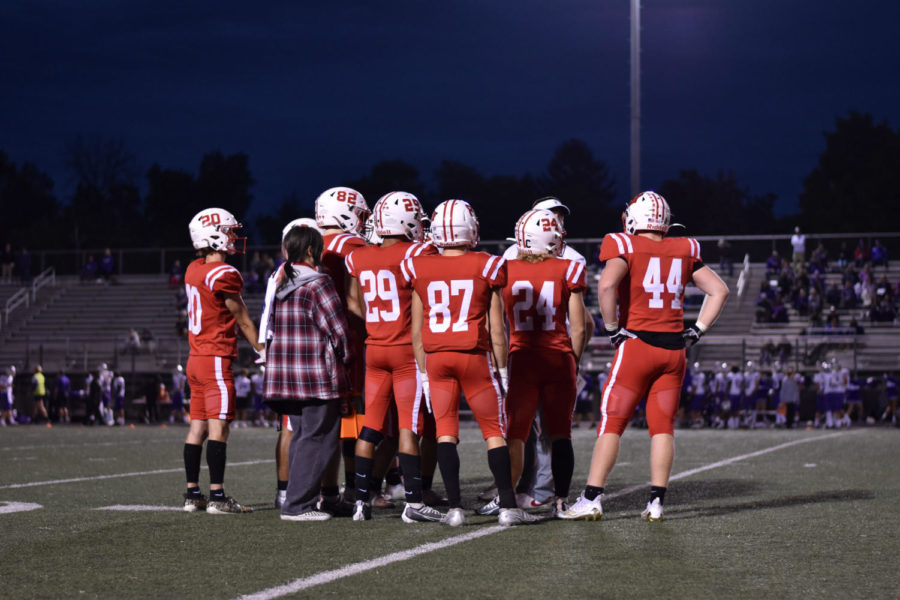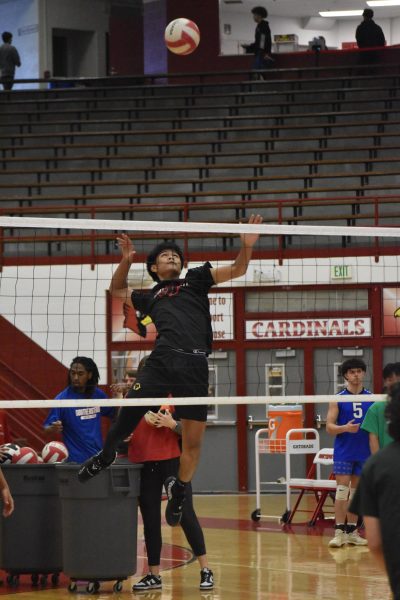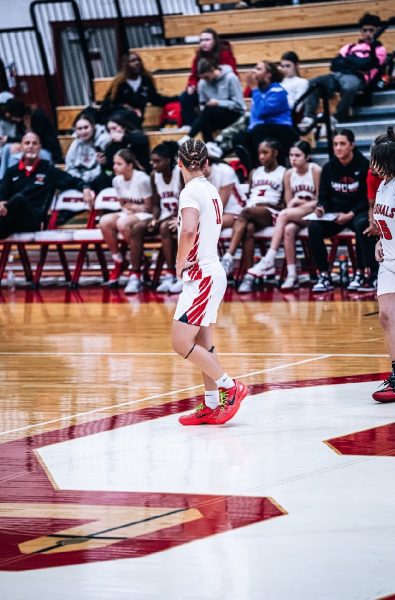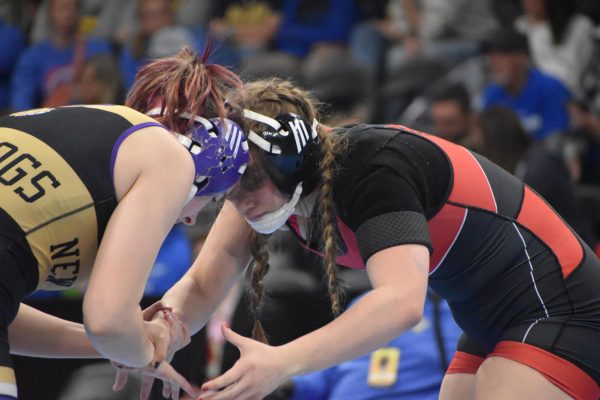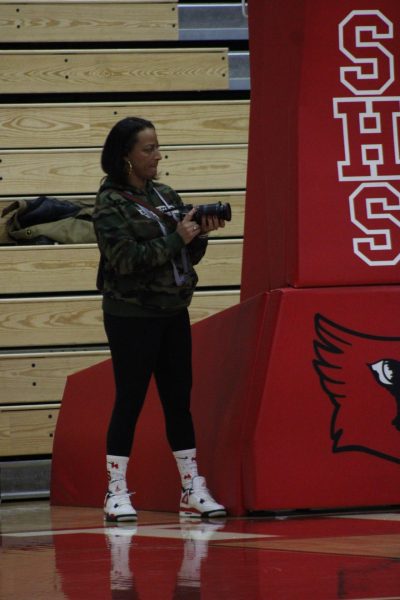Balancing act
How one three-sport athlete handles doing it all
Sophomore Ricky Sanders (29) listens while the Cards talk strategy before returning to the game on Sept. 23. Football is Sanders’s fall sport.
There are 23 class periods a week. Each week is full of constant work for any student. But for some, the work doesn’t end once the last bell rings.
As any student athlete knows, balancing school, personal life and a sport requires a lot of work. But some put on more pressure throughout the year, challenging themselves with multiple sports. Three-sport athletes put in extra work year-round to keep their grades and athletic performance up to par.
“It’s kinda fun, but it’s kinda hard at times (because of) all the preparation that goes into it,” sophomore Ricky Sanders said.
Sanders is a prime example of a three-sport athlete, as he plays football, wrestles and does track. He never has an off season and has to balance school and sports all year.
Although doing three sports can seem intimidating to some, Athletic Director Brian Murphy believes in the positive outcomes of participating in multiple sports, and encourages athletes to compete in a wide variety of sports to improve themselves.

“Any sport is good for an individual,” Murphy said. “We (the athletic department) believe that the more you do physically, the better you feel intellectually and the better you feel emotionally.”
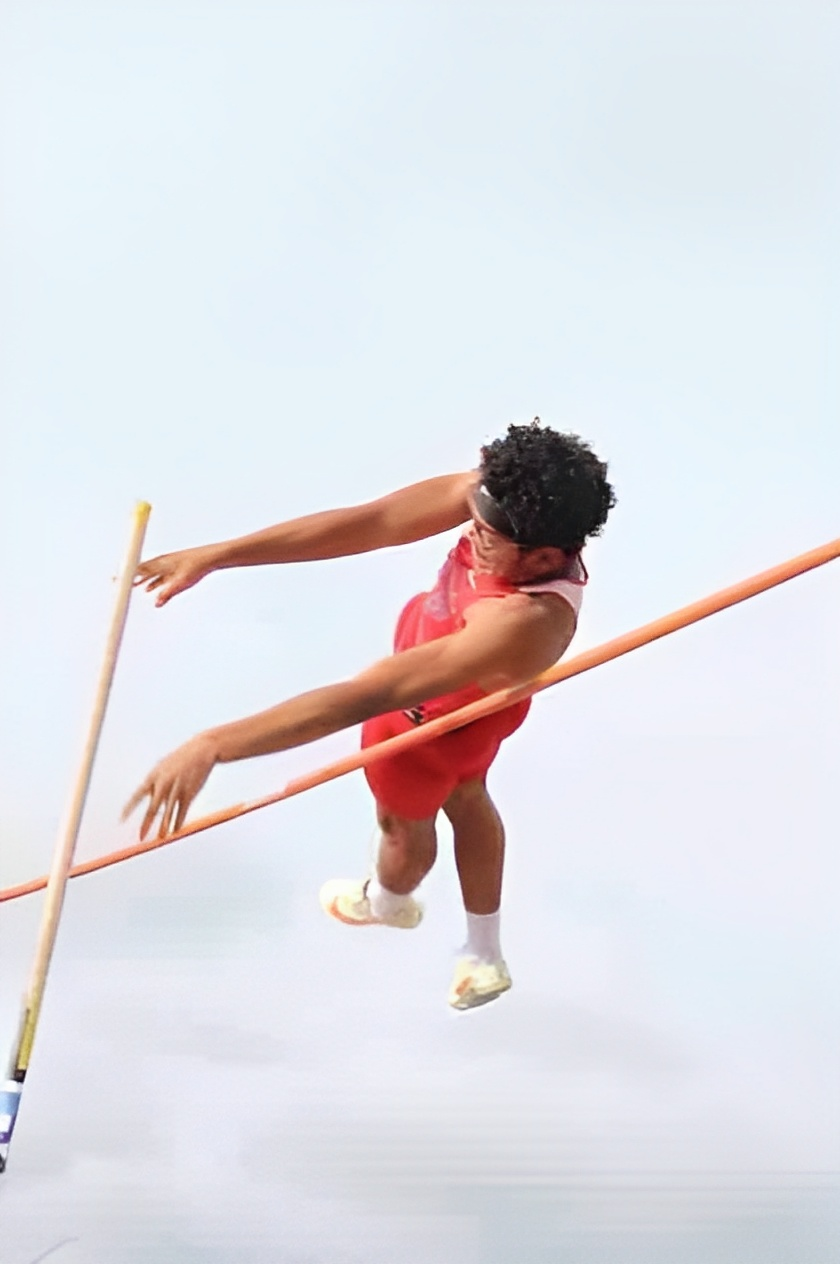
Sanders’s coaches agree that playing multiple sports can help improve an athlete’s mentality towards their workouts. His coaches see a difference between their multisport and single sport athletes, and often encourage their players to do other sports in the offseason.
When players do multiple sports, they often pick up different skills that help them to improve their versatility and athleticism, according to Dr. Karissa Niehoff. Niehoff is the director of the National Federation of State High School Associations, which deals with leadership in high school athletic and performing arts programs across the country. These benefits are especially apparent in sports that utilize similar skill sets.
“It’s well documented through time that as you develop in high school as an athlete that playing multiple sports is beneficial for you,” Head Football Coach Alex Bettag said. “So for Ricky being a young kid who’s been playing three sports for two years now, I’m really excited to watch him grow.”
Being a three-sport athlete isn’t all fun and games, according to Sanders. Playing even one sport can be difficult on a teenager’s body, and by competing in three sports, he knows that he is putting more stress on his body than most others, so meeting his nutritional needs is critical.
Eating a healthy diet with many nutrients is one way that Sanders keeps his body healthy enough to be able to compete all year.
“It’s really all about how you take care of your body,” Sanders said. “Like how you rest for that little period in between seasons, …and it’s about what you eat to stay healthy.”
Even though Sanders is extremely busy, one way that he keeps things under control is by focusing on only one sport at a time. Some multisport athletes train for all of their sports simultaneously, but Sanders believes this would be overwhelming.
“I focus on the main sport that I’m in, and when that other sport comes around, I’m focused on that sport,” Sanders said. “It’s not like all three of them get the same attention.”
While it may seem stressful to compete in so many sports, the positives outweigh the negatives for Sanders. The lessons and bonds that he has gained from his many different coaches and teammates have been well worth the busy schedule.
“I think the best part of it is the friendships and all the brotherhood you get inside of the sports,” Sanders said.

Hey beautiful people! My name is Lizzie Forrester, and I’m a Sports Writer this year. I’m a sophomore and this will be my first year writing for The...


